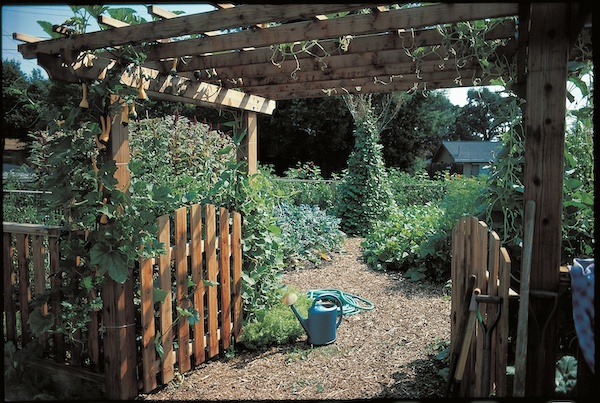While the gardens at OAEC offer a model for the eco=home ethos where ideas are put to the test, the ultimate goal of OAEC is to affect change on a larger scale. The Mother Garden disseminates seeds, both physical and inspirational, to “daughter gardens” throughout California. Plant sales, seed exchanges, school garden teacher trainings, internships, permaculture courses, and collaborations with major food, farming, social and ecological justice organizations throughout the country are among the myriad of ways that the Mother Garden shares her abundance. Here are a few examples of daughter gardens that are flourishing out in the world…
Food for Thought Food Bank Garden
1994 – 2018
For over 25 years, OAEC has had a deep collaboration with Food For Thought (FFT), a food bank in Forestville that serves over 700 clients living with HIV/AIDS and other critical illnesses. After many years of volunteering with FFT, Doug Gosling, OAEC’s Mother Garden Biodiversity Program Director, helped to establish the garden there in 1999 and steadfastly managed and maintained this robust one-acre plot with the help of a dedicated team of FFT volunteers till 2019. OAEC furnished the Food Bank with seeds, starts, labor and inspiration for so many years, and thus, the OAEC Mother Garden Biodiversity Program considers the Food for Thought garden to be its most important “daughter garden!”






